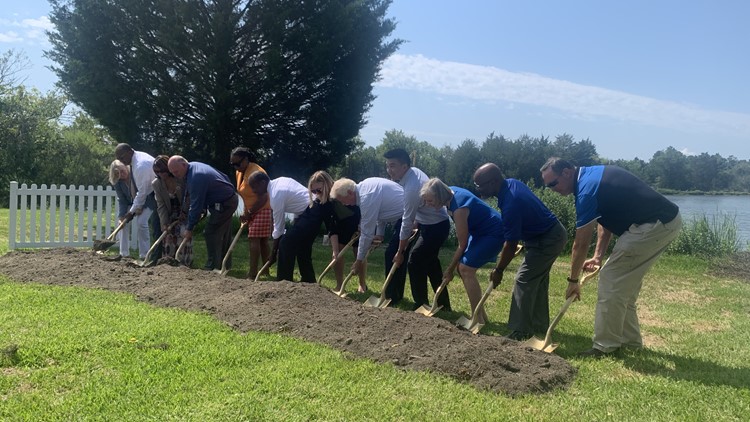HAMPTON, Va. — A new resiliency initiative designed to reduce flooding in Hampton's Newmarket Creek is finally underway.
The first of three projects broke ground Friday, with the goal of transforming Lake Hampton into a nature habitat with trails and recreation, according to a news release. The habitat will also help reduce flooding and filter polluted runoff.
“These projects aim for innovative ways to manage stormwater and flooding, and they create multiple benefits for the community,” Mayor Donnie Tuck said.
The three Newmarket Creek projects will cover Lake Hampton, the Big Bethel Blueway and the elevating of North Armistead Avenue and green infrastructure. All three are projected to store and filter more than 8.5 million gallons of stormwater, the release said.
“Stormwater is a major – and increasing – source of pollution to our rivers and the Chesapeake Bay,” Peggy Sanner, Virginia Executive Director for the Chesapeake Bay Foundation, said.
“Designing infrastructure that will meet current and future environmental conditions should – and I argue must – incorporate green elements that will function like the natural environment to reduce polluted runoff, mitigate flooding, beautify neighborhoods, and create recreational benefits for communities,” Sanner said.
Hampton is Virginia's first locality to use Environmental Impact Bonds as part of the project's financing. According to the release, the "green bonds" have helped secure an additional $24 million in grants from state and federal agencies.
“The need for this work is only increasing,” Tuck said. “Resiliency is not accomplished by the City of Hampton alone – we need local, regional, state, and federal partners. We need individual community members to take resilient action and continue to renew their commitment to the future of Hampton.”
The Lake Hampton Resilience Park's habitat will attract birds and other wildlife. Its shared use path will also connect to the existing Waterwalk Trail park.



